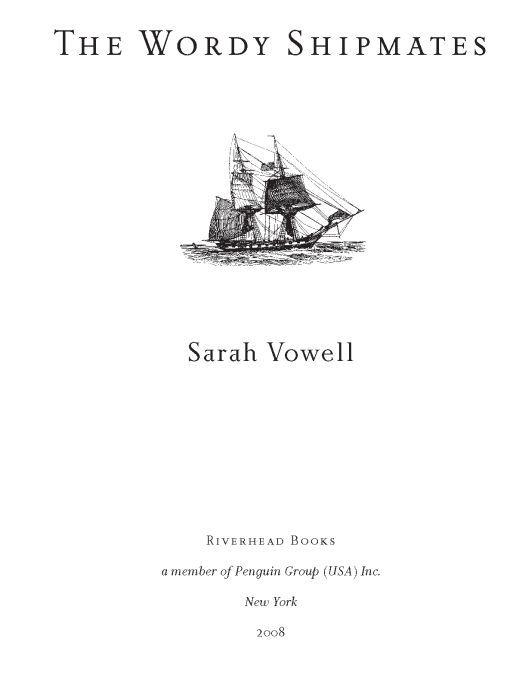
The Wordy Shipmates
کتاب های مرتبط
- اطلاعات
- نقد و بررسی
- دیدگاه کاربران
نقد و بررسی

Starred review from July 28, 2008
Essayist and public radio regular Vowell (Assassination Vacation
) revisits America's Puritan roots in this witty exploration of the ways in which our country's present predicaments are inextricably tied to its past. In a style less colloquial than her previous books, Vowell traces the 1630 journey of several key English colonists and members of the Massachusetts Bay Colony. Foremost among these men was John Winthrop, who would become governor of Massachusetts. While the Puritans who had earlier sailed to Plymouth on the Mayflower
were separatists, Winthrop's followers remained loyal to England, spurred on by Puritan Reverend John Cotton's proclamation that they were God's chosen people. Vowell underscores that the seemingly minute differences between the Plymouth Puritans and the Massachusetts Puritans were as meaningful as the current Sunni/Shia Muslim rift. Gracefully interspersing her history lesson with personal anecdotes, Vowell offers reflections that are both amusing (colonial history lesson via The Brady Bunch
) and tender (watching New Yorkers patiently waiting in line to donate blood after 9/11).

Starred review from October 1, 2008
Although Puritanism is conflated with modern religious fundamentalism and its disregard for any learning that doesnt come from the Bible, Vowell argues passionately that Puritans were as enamored of wisdom and knowledge as religious virtue. Focusing on the Puritans who settled in 1692 in the Massachusetts Bay Colony, Vowell laments the image of Puritans as boring killjoys when in fact they were fascinating killjoys who, aside from their belief that Catholics were going to hell, were much more open to new ideas than weve been led to think. Drawing on letters, essays, and sermons, Vowell offers a penetrating look at the tensions between John Winthrop, John Cotton, Roger Williams, Anne Hutchinson, and others as they argued about the role of religion in government and everyday life. They saw themselves as Gods chosen people, a credo that set the tone for American history and notions of manifest destiny that have led to all manner of imposition on other lands and cultures. But they also vehemently debated separation of church and state and founded Harvard, even as they pondered the destiny of what Winthrop referred toas the shining city on the hill.A bookdense with detail, insight, and humor.(Reprinted with permission of Booklist, copyright 2008, American Library Association.)

























دیدگاه کاربران